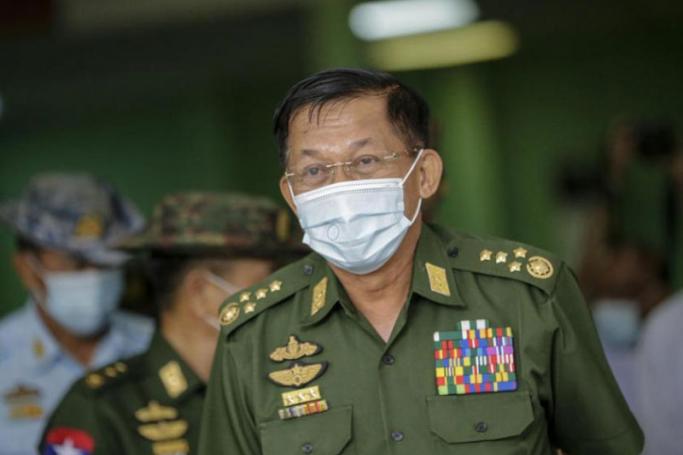As Cambodian PM Hun Sen flies in to Naypyitaw it would be wise to ask whether Cambodia’s “win-win policy” will work in post-coup crisis-hit Myanmar.
Hun Sen is no stranger to the Myanmar situation. In order to dismantle armed groups and restore peace, Prime Minister Hun Sen shared his experience with Myanmar Military leader Min Aung Hlaing in 2017 showing his willingness to support Myanmar’s ongoing peace process.
But Hun Sen would appear to have issues when it comes to peace and democracy at home.
As a matter of practice, Hun Sen is an autocratic ruler and Cambodia is still struggling itself for freedom of expression despite the statement in The Constitution of the Kingdom of Cambodia (Article 41) describing that ““Khmer citizens shall have freedom of expression, press, publication and assembly. No one shall exercise this right to infringe upon the rights of others, to effect the good traditions of the society, to violate public law and order and national security.”
If one sees the arrests of young human rights activists and artists, the situation of freedom of expression in Cambodia can be seen as critical. Regarding freedom of expression, the Cambodian government was called upon by NGO Human Rights Watch to amend their penal code, which went into effect on December 10, 2010, to remove provisions that limit the peaceful expression of political views so that the law fully complies with international standards.
Though several organizations have raised their voice to the Royal Government of Cambodia, the government is still punishing the expression of criticism.
Clampdowns on freedom of expression and fundamental human rights are matters of key concern to human rights defenders, even though Cambodia has ratified international human rights instruments.
It is therefore troubling to attempt to assess how the Cambodian PM – whose country has just taken up the ASEAN chair for 2022 - will handle the Myanmar crisis on behalf of ASEAN and how much he will act as a lone cowboy.
Given Hun Sen’s handling of his own country, how can the people of Myanmar put their hope in Cambodian intervention to bring peace and stability?
Besides that, how can an ASEAN country which has no intention to accept the political criticism from its own people solve the issue of Myanmar where military junta is committing human rights violations?
Hun Sen might be proud of his negotiation role in the final surrender of the Khmer Rouge in the late 1990s. Yet, although he has this type of negotiation experience, it should be remembered that he is the one who staged a violent coup in 1997 and took over leadership of Cambodia. On this account, maybe he and the Myanmar junta leader can compare notes on violently taking power.
On the other hand, Cambodia believes that the Regional Comprehensive Economic Partnership (RCEP) and the Cambodia-China Free Trade Agreement (CCFTA) can boost its exports and the rate of foreign investment at the same time. They hope to access the great market of China.
In the meantime, Cambodia appears to matter to China, as does Myanmar.
Therefore, it is obvious to see the control of China in creating new initiatives and programmes in order to advance regional cooperation.
Regarding the link with China, U.S. State Department Counselor Derek Chollet expressed his concern that Cambodia’s link with China definitely can be a threat not only to the interests of region but the United States, noting that China might encourage Cambodia to ignore the West’s concern about human rights problems in Cambodia.
Concerns have been expressed that the standing of ASEAN could plummet under the chairmanship of Cambodia and given the influence of China.
To conclude, the visit of Prime Minister Hun Sen will be a booster to crimes against humanity of the Myanmar Military junta as Hun Sen said that he will press for Military Junta to be allowed to attend ASEAN meetings since he believes that the junta must have the rights to attend such meetings.
As a chairman of ASEAN, should he respect the ASEAN member countries’ decision to exclude Myanmar junta from attending summits or should he respect the rights of junta who killed 1,437 and arrested 11,341 people as of today?
It is about time to pay heed to the will of the ASEAN member countries and push ahead to properly resolve the Myanmar crisis.












